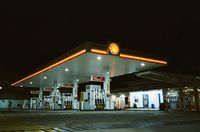On April 1, 2025, Shell finalized the sale of its Singapore refinery and associated refining assets to a joint venture between Chandra Asri and Glencore. This significant transaction marks a pivotal shift in the ownership of the refinery and its assets, which have been operational since 1961. The refinery operations will continue under the new ownership of Aster Chemicals and Energy Pte Ltd, ensuring a seamless transition for the facility's workforce.
According to a report by Reuters, the financial details of the agreement between Shell and the Chandra Asri-Glencore joint venture were not disclosed, although the transaction was originally expected to be completed by the end of 2024. Shell has announced that its employees on site will be transferred to the new company, Aster Chemicals and Energy Pte Ltd, which is a strategic move to maintain operational continuity and expertise.
Chandra Asri, a prominent petrochemical company based in Indonesia, has already begun to secure multiple purchases of open-specification naphtha, with deliveries expected to start in March 2025. This proactive approach underscores the company’s commitment to ensuring a reliable supply of raw materials for its petrochemical operations. The decision to purchase naphtha of open specification provides flexibility in supply and potential cost advantages.
In a related development, Shell's chemical complex in Jurong Island has significantly ramped up its naphtha imports in 2023 and 2024, bringing in approximately 1.5 million tons annually during those years. This increase is likely driven by an expansion in production capacity, new downstream projects, or shifts in regional supply and demand dynamics for petrochemicals. The ongoing changes in the market reflect the strategic positioning of both Shell and Chandra Asri in the Southeast Asian petrochemical industry.
Meanwhile, Glencore, the Swiss commodity trading and mining giant, has been actively securing crude oil supplies, with several shipments expected to arrive in Singapore in May and June 2025. Reports indicate that the crude oil is sourced from various regions, including Canada and Kazakhstan, highlighting Glencore’s strategy of diversifying its supply sources.
On the same day, Shell also announced the completion of its acquisition of Pavilion Energy's Singapore LNG trader from Temasek. This acquisition, first announced on June 18, 2024, involves the purchase of Pavilion Energy’s global LNG trading businesses, which include long-term sales and purchase agreements totaling 6.5 million tonnes per year (MTPA), regasification capacity, and its LNG bunkering business.
Shell aims to increase its sales by 4% to 5% annually until 2030 through this acquisition. Experts in the energy sector believe that this purchase will bolster Shell’s dominance in the LNG market, particularly in Singapore, which is recognized as the largest LNG bunkering hub in the world. Pavilion Energy has been an active contributor to Singapore's LNG bunkering ecosystem, having opened over 280 LNG truckloads and launched its first ship-to-ship LNG bunkering operation in February 2024.
The integration of Shell and Pavilion’s LNG bunkering businesses is expected to further consolidate Singapore’s status in LNG trading and bunkering, given Shell’s extensive portfolio and global reach. The Pavilion Energy portfolio also includes long-term regasification capacity of approximately two MTPA at the Isle Grain LNG terminal in the United Kingdom, as well as regasification access in Singapore and Spain.
Furthermore, Pavilion has time charter agreements for three electronically controlled gas injection LNG vessels and two tri-fuel diesel-electric vessels, enhancing its operational capabilities. However, Pavilion’s pipeline gas business in Singapore was not included in the transaction and has been transferred to Gas Supply Pte Ltd, a wholly-owned subsidiary of Temasek. Additionally, Pavilion's stake in two offshore oil and gas blocks in Tanzania was excluded from the sale.
Shell holds the first LNG import license for Singapore, supplying nearly a quarter of the country's natural gas needs. The global demand for LNG is projected to increase by more than 50% by the end of 2040, signaling a robust growth trajectory for the industry. This acquisition not only strengthens Shell’s position in the LNG market but also aligns with the company’s long-term strategy to enhance its capabilities and meet the rising demand for natural gas.
As Shell continues to expand its footprint in the energy sector, the recent acquisitions and strategic partnerships underscore its commitment to maintaining leadership in both the refining and LNG trading markets. With a focus on operational efficiency and supply chain management, Shell is poised to navigate the evolving landscape of the energy industry effectively.


